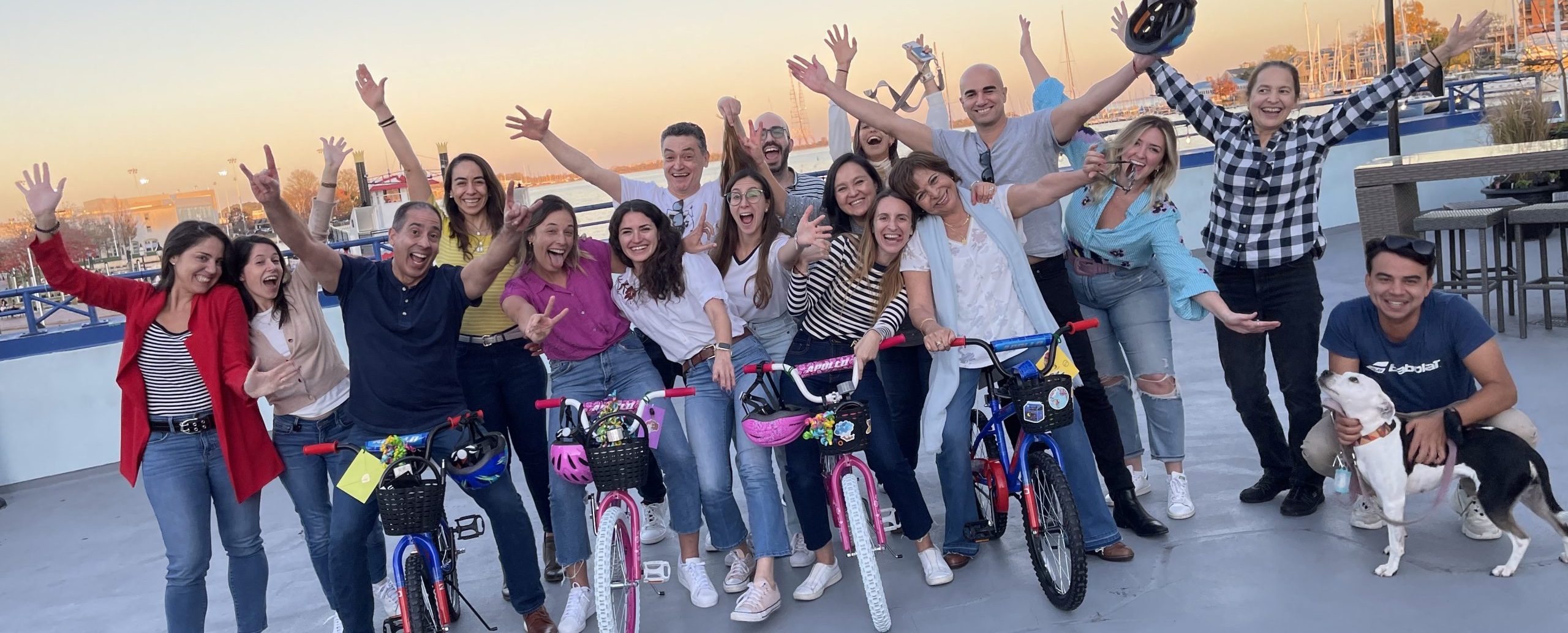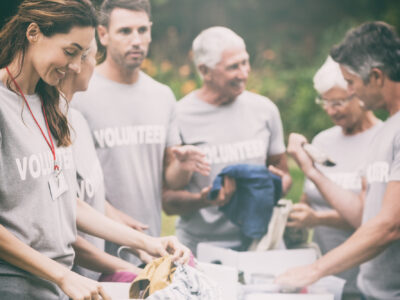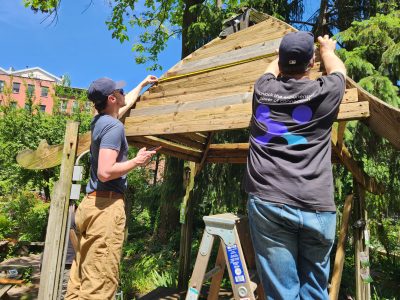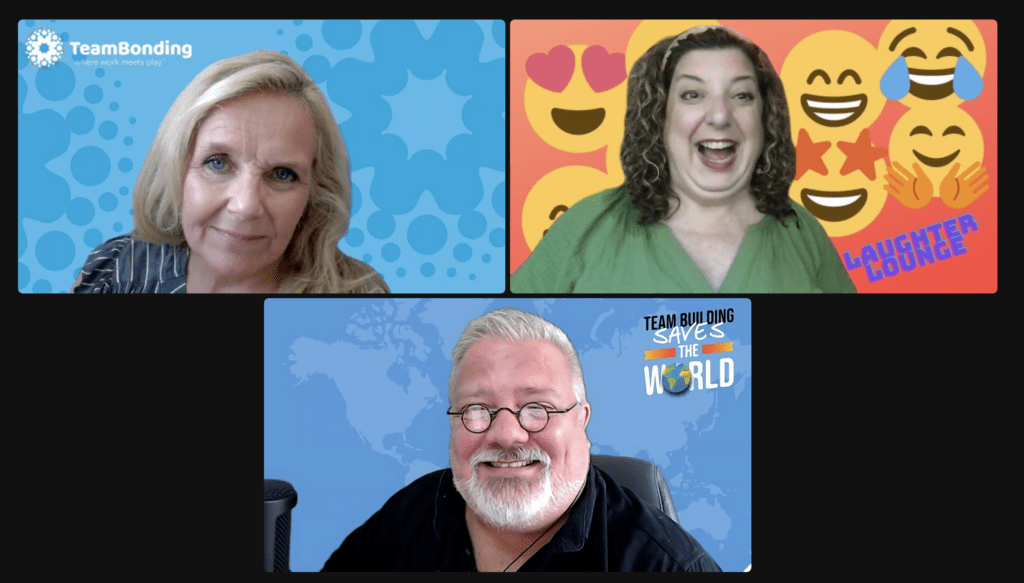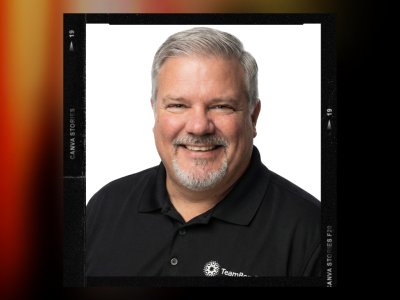STRONG TEAMS DON’T HAPPEN BY CHANCE 
Breaking Free From Boring Corporate Training
w/ Jayne Hannah & Amy Angelili
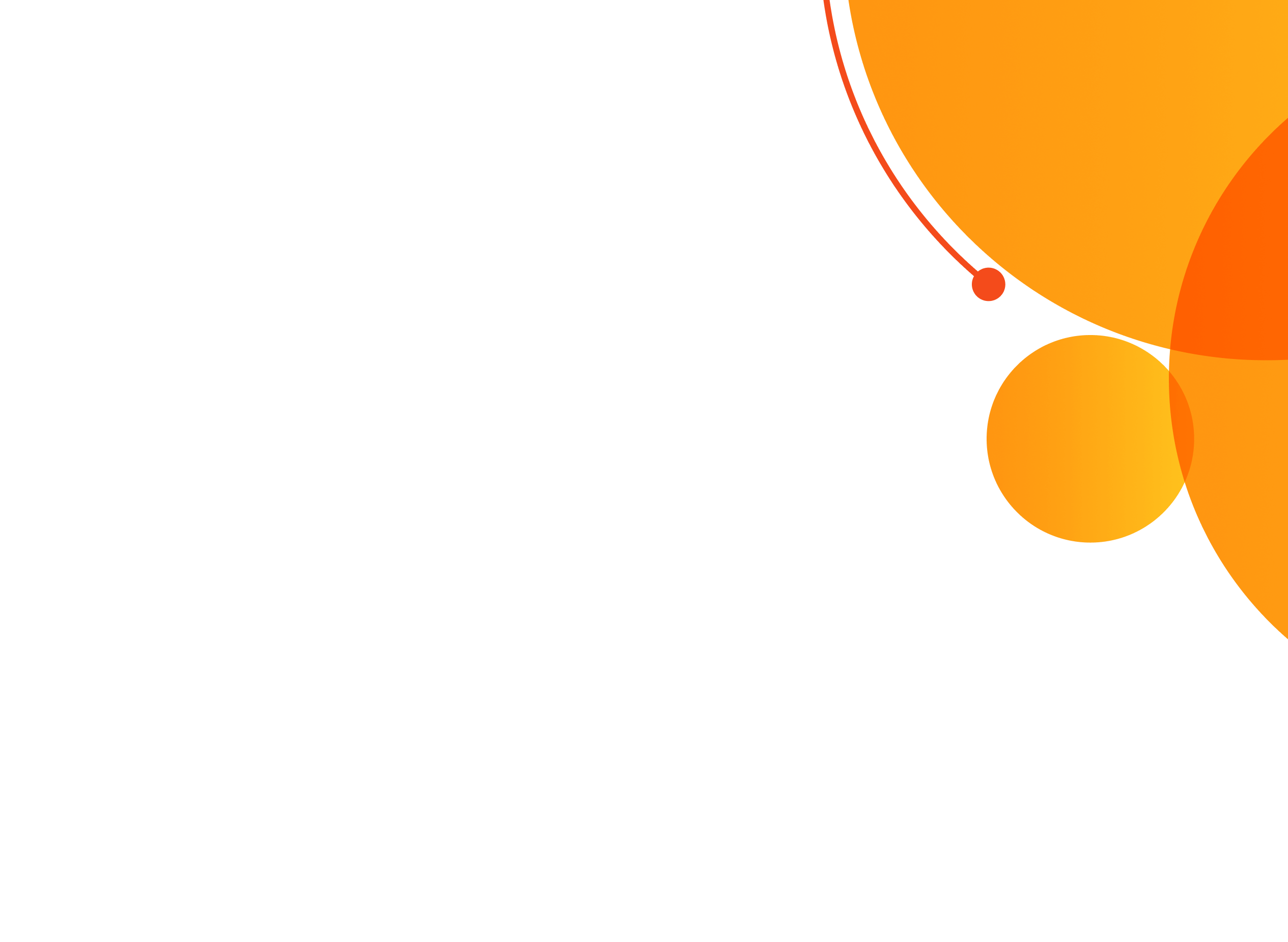
Use the buttons above to listen now.
Transcript - Breaking Free From Boring Corporate Training
Rich: On this episode of team building saves the world.
Amy: Well, laughter yoga is not a laughter yoga while doing down dogs. I’ll say that first, because that’s automatically assumes is really lovely because then I knew that it wasn’t just a quick recess, a quick timeout. It, it had staying power beyond the recess.
Yeah.
Jayne: Yeah. But it has the same benefit of taste.
Amy: So is beer yoga too,
you
Rich: know. Hello team, it’s me, your old friend, Rich Rininsland host of Team Building Saves the World. The show where I speak to thought leaders from around the world, discussing very Able strategies and tools to help you and your team build a better work environment. And today, I hope you’re all feeling pumped ’cause we’re discussing motivation through corporate training with Team Bonding’s, director of corporate training and virtual events, Jayne Hanna, and the Chief Adventure Officer of the Adventure Project, Amy Angelili.
But first, I need to share some love with my support as a team bonding. If you’re ready to experience teamwork with the Power of Play to visit’s team bonding.com to learn more now, team, join me welcoming my guest for. Hello, facilitator and team builder, Amy Angelili, and longtime friend of the show, Jayne Hannah.
Hello, ladies.
Thank you both so much for coming on, Jayne. Always a pleasure. Good to see you again. And Amy, welcome. It’s fun to be here. I hope that continues throughout.
But now I want to talk to my team out there just to let them know that, uh, well, and you guys, um, that we’re all team building professionals. We all work for team bonding in one way or the other we’ve been doing this for for a number of years But amy, uh, let’s start off with you so we can introduce you properly to everybody Just tell us a little bit about yourself how you got started what and what took you in the direction of facilitation?
Amy: Well, I got divorced a long time ago and that led me to my first improv class and Yep, because, you know, uh, getting a divorce, great time to reinvent yourself and over the years, I discovered that improv and laughter are wonderful tools for connecting and bonding people and the cooperative play is a wonderful way to get organizations functioning in a different way than they might during their everyday experience.
So I, uh, went from being on the stage. To taking those skills off the stage and out into the real world for personal and professional development purposes,
Rich: and I don’t want you to feel bad, Amy, because, I mean, I was married a while ago and I’ve been an improv actor and performer for almost 25 years now.
And I think it’s part of the reason I got divorced, but
Amy: my, my second husband called it my little art. And I thought, Oh, I don’t see longevity in this.
We’re not going to be bonding over this, are we?
Rich: But Janie, we do want to talk about corporate training. And of course, I’m going to be completely honest with you guys. Part of the reason why I was excited to have you on, Anna, my producer, and I have been talking. And recently, especially in this season, we’ve had a lot of time where I’ve asked our guests their opinion of team building facilitation as a method for getting corporate training across to people.
And to say they weren’t thrilled with the idea of team building as a method, well, left me a little cold. At best, they questioned the effectiveness of it. At worst, we got one guy who was like, bike building does nothing for anybody. So I want to actually go ahead and let’s start off. Janie, tell us if you can, what is it about the team building facilitation that we actually can help get across?
training.
Jayne: Well, here’s what’s so exciting. And I think things have really changed in the last four to three years that we’re recognizing that I always say to the team, we’re human beings first and then we work. And team building actually gives you that opportunity just to forget about work and be you and that’s who you want showing up at work.
That’s who you want to trust. That’s who you want to support because we are at work more than we’re not. And so that’s where the team building comes in. It’s effective because where else can you spend time chatting with your CEO while doing something together? That isn’t, I’m not just talking about eating and drinking.
I’m talking about physically doing something and working toward an end result. And I think more than ever, the world has generally opened up. To a bit more, um, self exploration into heart matters and who they are. And that’s what training is all about to just open the door to that. And I love that. And I’m excited.
Rich: Yeah. Cause I was going to ask, cause, um, when we talk about corporate training, we talk anywhere from technical skills to soft skills and is our end of the business, more focused on those soft skills, or can we actually be involved in, in the greater. Training method.
Jayne: Well, yeah, because we don’t know all the technical requirements to set up a computer to set up a whatever, whatever your product is.
But we know how to effectively run a team to make that happen. So we will focus on those soft skills, communication, emotional intelligence. It’s, it’s learning how to support and develop your teams and, um, to get the best from your team as well. So, and not just for leadership, how to step up and be a member of that team.
So I would say, Rich, you are correct. It’s more of the soft skills that we focus on that can nicely support then what you’re trying to train someone to learn and to deliver.
Rich: Okay. And, and Amy talking about you focus a lot for especially team bonding on what’s called laughter yoga. Can you first just described my team?
What is laughter yoga? And how does that work with corporate training?
Amy: Well, laughter yoga is not laughter yoga while doing down dogs. I’ll say that 1st, because that’s automatically assumes it’s 7 parts. Breathing, stretching, clapping, guided laughter exercises, and then meditating and relaxing. So you go on quite a roller coaster ride over the course of an hour.
And like Jayne was talking about the soft skill development, I actually call soft skills essential skills. Because no matter who you are or what industry you work in, you’re working with people 1st and the fastest way to connect people is through smiling and laughing and not laughing at something funny, laughing for the sake of joy and health.
Well, being and so, you know, laughter yoga is is a way for people to. Physically relax and mentally relax and do something seemingly ridiculous with their teammates. With a positive outcome at the end is like the sweet spot between a traditional yoga class and an improv class because you’re getting that nice release of your body.
I, I, I work on stretches that force us to do chest openers. Because we’re also hunched over the computer and the telephone and that bonding that they do while they’re laughing for no reason, but with a purpose is really, really important. And once they see that everybody’s in this together, and nobody’s being put on the spot, it really becomes a bonding experience.
And there’s, you know, funny little words and lingo used in laughter yoga, yeah. That then they like to take back to their office and integrate into their meetings. And that’s, you know, another thing that is really important is to keep that spirit of the, the laughter and the bonding alive beyond the event.
It’s great to have that recess and it’s even greater to bring that to pack that recess up and bring it back into the office.
Rich: Well, let me ask you, Jayne, the corporate training that we offer, who is this actually for? ?
Jayne: Corporate training is for everyone. . So training is, don’t imagine it’s just for leaders and, and top CEOs, managers.
Yes, it is, and it should be, but it’s also, how about new recruits coming into your company? It is, to me it’s just an an extra step of team building. Of boosting morale, because you’re, you’re welcoming people. You’re saying this is a safe place to work. This is a good place to work. And this is what we’re all about.
It’s the perfect place to share what your mission is about, what your purpose is about. So. I think people have that old fashioned idea, corporate training. It means, you know, we are gonna stand in front of you and lecture and there’ll be an exam at the end. It isn’t about that at all. It could be a day, it could be an hour, it could be in person, it could be virtually, but this is all just about connecting the dots for what you want your company to be and how you are effectively going to communicate that within your team.
And outside and who you are. So that’s what it’s about. That’s who it’s for.
Rich: Well, Amy, how is it the Laughter Yoga can deliver that to the client? Because
Amy: Laughter Yoga is sort of like opening that first door, right? So there’s team building, there’s team bonding, and there’s team development. In order for your team to This is what I say in order for a team to develop, they have in order for them to bond.
They have to build something. Right? And so the easiest way to connect people is through laughter. We all laugh. So getting them to laugh at nothing, but with a purpose is a little bit vulnerable. Right, so if they can share that side of them with each other, then they’ve, they, they bonded through the shared experience.
They’ve built something together and now they’re ready for the next step. Whether that next step is higher level, social, emotional learning. Um, development of soft slash essential skills or whether it’s now on to technical development, it’s a, it’s a great first step in the, in the journey of, of bringing that team together for a common longterm goal.
Rich: Is it just the shared experience or is there something that goes along with it or during it that actually brings people together who normally wouldn’t be.
Amy: I’m actually going to shoot this question to Jayne. Sure. The reason why is she watched in person the last session I did for team bonding. And she, I don’t want to speak for you, but I think you learned a lot.
Yeah, being there on the sidelines to see that unfold.
Jayne: Yeah, it was great to be there in person. I mean, it works so well virtually too, but in person, it was really cool. And this was opening up. They were there for 2 days. They were a leadership group. team who were coming together to brainstorm. They had had some serious issues going on within themselves and from outside resources.
And they were there to really, really put their heads together, really have honest and open communications. And some people knew one another and some people only knew one another from the screen. So. This was the opening to these two days, and I can’t think of a worse way of opening than to have the person who’d organized it say, I’m going to talk for 45 minutes about what our agenda is and what we want to achieve by bringing in something like laughter yoga.
Immediately, people just relax, they laugh, they communicate. As Amy said at the beginning, there isn’t anything that makes you feel on edge or that you’re being laughed at. It’s really comfortable. And as I will always say, and I’m saying it again, we’re humans first. So this allowed them just to relax, just to say hi to people that they’re meeting for the first time in person and just to have some fun.
We did an hour. which went by as though it were just five minutes. It was, it was really good, really effective. And Amy was able to suggest a few little things to use throughout those two days. So if they would have some uncomfortable conversations, which they were bound to have, they would be able to have this point to go back to where they could just relax.
And, um, to Amy, I’m saying what you say, but what I got from it was remembering to breathe, which is the basics of yoga, right? But this was done in a really nice way. I’m petrified of yoga. I think of, you know, people in beautiful things who walk in Whole Foods and only eat lettuce and say they’re full. So that’s what I think.
Amy: Clearly, I am not. So I’m here with you.
Jayne: Realize yoga isn’t about that, but it is about breathing. It is about centering ourselves. And we have that because we’re traveling with that constantly. So to use it in our lives. And personally, professionally, it was just so important and done in a really cool way.
So that was my experience of it.
Amy: And I just want to add to what that, that human piece. If you address the humanity of the situation first, then everybody sort of drops their labels and their titles. You know, and those hats and masks that we wear in our workplaces. And we’re just people showing up to do this fun thing and to get to know each other.
And oh, P. S. this fun thing has some benefits that go beyond just having fun.
Rich: Well, give us an example of this, Amy. I mean, how do you get their attention for this right out of the gate?
Amy: So if you think about it, working in a team or working in an ensemble, improv troupe, um, or dating all have things in common in that you have to be able to connect appropriately with another person or other people.
Right. And so in order to do that, what do we need to do first? We need to be able to slow down and connect with ourselves. So all the breathing and stretching that we do, not just in laughter yoga, but in all my improv classes in all my corporate training and all my team building gives the individual an opportunity just to relax alone before then being pressured to interact in some capacity.
With their teammates. And I think we, I think we forget about that because we’re so used to go, go, go, go, going in our culture, especially in our workplaces, we forget the benefits of slowing down and getting grounded. And that’s something that you can do at the start of. Any kind of meeting, any, any, any work day, you come back from lunch, you know, just to spend a few moments with yourself getting centered before, you know, reaching out to somebody else for the product or the service or project, whatever it is that you’re working.
Okay.
Jayne: Yeah, absolutely. We do a program about emotional intelligence. And, um, I was just talking about this, uh, when you’re in that moment. When you’re having a spiral and you’re, you’re, you know, reacting to something with emotional intelligence, we’re teaching about, um, or we’re sharing information about how to handle that.
The warning signs for yourself, the warning signs for other people, but paired with a program like laughter yoga, where you physically can address that and come away with some tips and ideas that you can use, that’s key. That that’s something that you’ll take with whichever company you’ll be with, but I can’t imagine it.
I can’t imagine trying to lead a team without bringing things like that in tools like that in to seriously look at look at the way we can be together and just work in a better environment.
Amy: And there’s a difference between reacting and responding. And through those cooperative play opportunities, you know, like laughter yoga and like, like improv, we can practice doing both and we can see the difference.
The different kind of results, both, you know, opportunities bring in a low stakes environment. Yeah.
Rich: Yeah. I want to dig into this a little bit more deeply ladies, but first, as you know, I got to step away for a quick second because I need to tell all my team out there about a company we’re all so proud to be a part of team bonding.
Team bonding was founded over 20 years ago with one simple question. How can employees have a great time while fostering strong, authentic bonds between people who work together? No matter where your company is located, Team Bonding offers powerful, engaging, custom team building events designed to get the best out of your team anywhere in the world.
They’ve created a catalog of innovative events using the power of play as a learning tool and tapping into the correlation of work and play. Whether it’s scavenger hunts to jeopardy and so much more, the team bonding of activities, be they live, virtual, or hybrid maximizes the impact of team building with an accent on fun.
So visit teambonding. com to schedule your event. Now team bonding when you want seriously fun results, and we’re back talking about the fundamentals of corporate training with Jayne and Amy, Amy, laughter yoga, what’s the laughter all about?
Amy: The last is about absolutely nothing. So think about it this way. Um, if you’re around a small child, like, I was just, I just spent the weekend with my 5 year old niece who laughs at everything. Or laughs with everything because she’s just practicing joy. And if you asked her what she’s laughing at, nine times out of 10, she doesn’t even know she’s just embodying joy.
And so somewhere along the lines, as we get older, we’re told, uh, laughing is for certain places, but at work we have to show up and be serious. So a medical doctor named Dr. Kataria did a study on laughter in Mumbai, India. And long story short, what he realized was not only of course, do we benefit from laughter, but we, the body and the mind benefit from laughter, whether it’s fake laughter or real laughter.
So we as grownups don’t have to sit back and. You know, challenge people go ahead and make me laugh. I bet you can’t make me laugh instead. We can just invite it. Right? So, if we’re standing around the water cooler with, you know, our coworkers, there’s no reason why that can’t turn into a 60 minute. Oh, 60 minutes, 60, 60 minutes.
Sure. 60, 60 hours. So 60, 60 seconds. Right. Right. Yeah. You know, and, and there’s so many silly exercises that you could do to get the laughter going, but actually it doesn’t take much because as soon as one person starts. Fake laughing, it becomes organic laughter for the others around and then everybody’s organically laughing and it’s a stress reliever and it’s it’s a bonding moment.
Right and it’s good for individuals and then it’s good for for teams of people. Yeah.
Jayne: And we thought, I mean, it’s very, um, addictive and, and we thought it would be better to have laughter yoga than yawning yoga, which is also addictive, but it has the same benefit of taste.
Amy: So is beer yoga too, you know.
Jayne: That’s right.
Rich: That’s right. Well, I can laugh and I can yawn, but I can’t do the beer.
Jayne: There’s great community, right? Team building, like, in the Stone Age times, I guess. I was around then, I remember, was all about community. And, um, the, you know, they use Haka in the, in the sports, and we do that too. But that’s about a group coming together to intimidate another.
But it brings powerful connection for that team who are doing it. Um, singing, team harmony, things like that. It brings everyone together. Well, so does Laughter Yoga do that too. I would say it’s even less intimidating than thinking about singing together. But it’s all just about release. And it’s all, again, just about being us.
Us at work, as Amy said, and not the title that’s, you know,
Amy: well, I never want to know anybody’s title. Yeah, I never want I never want to know who anybody is and I encourage them. If it’s in person to move through the space and make eye contact together while we’re doing a laughter exercise. So they’re encouraged to share these little micro moments with each other, you know, as they through that laughter yoga experience and it’s fun.
It’s fun to watch because I never really know, you know. In what capacity everybody exists in, in the world, you know? Yeah. Yeah.
Jayne: We always, we always encourage every single person to participate, whether it’s CEO, whether it’s an intern, that’s what it’s about. You know, we’re not flying. We’re not first class.
We’re not keeping people behind the curtain. We’re not like that. This is about us all coming together.
Rich: But how can we use this to motivate people? I mean, is this basically we’re hoping to make those connections one on one with everybody in the group, or are we hoping that somehow this will bond them together to, to make that team that we need them to be the second one?
Amy: Uh, and the first one too, the last experience I had, I had the opportunity to do a little takeaway circle at the end because we had. A wonderful five extra minutes. And with that takeaway circle, the participants get to share something that they liked. They learn, they resonated. And once they do the share, we, we give them one clap.
And there were several people that, and I’m not, I’m not making this up. They were one step away from a tear. And they said they realized through the playful activities that we did, that they really do need each other to succeed. It can’t do the work alone.
Jayne: Yeah,
Rich: that that’s powerful. That’s powerful stuff.
Yeah.
Jayne: Yeah. That’s so, so important and team building gives that opportunity. Training takes that to another level of just again, realizing and we, we all want to succeed individually. We are, we are brought up. Competitively, right? And we want to be the very best that we can, but we can forget that we can be better with the support of others.
And, uh, that that’s what these type of programs give you the opportunity to do. There’s another 1 that we do. If you don’t mind me saying again in person virtually and team uses an exercise where they actually say something like, um, how’s your day and there was some people who saying, you know, I didn’t even realize that person had, you know, two sisters or, or had won the lottery or whatever it was, and, and, and we work in the same department and we rely on one another.
It’s just taking that opportunity to make those connections. It’s so important. So, yeah,
Rich: this leads me to what was going to be my next statement of Jayne. You’ll be very proud of this when. I knew Jayne was coming back on. Uh, I went back and listened to the very first episode Jayne and I did together our first season, uh, and she mentioned something that a lot of my guests have started bringing up more and more empathy.
Which, my question always becomes, how on earth can we teach empathy? And is there something in this program that can do that? That can help you see the other person and what they’re going through more clearly?
Amy: I feel like improv is a wonderful tool. For empathy, because you cannot do anything in improv without actively listening.
And 1 of the things that we tend to do as human beings is we listen to respond instead of listen to understand and actually hear. So, through our. Uh, and rich, you know, this through, through our cornerstone improv rule, if you will, of, of, of yes. And right. We’re ultimately saying with that is yes, I hear what you’re saying and now I’m going to add my piece to this dialogue.
And it’s not necessarily about agreeing. It is about accepting the reality of the other person. And that’s huge.
Rich: But what about with Laughter Yoga? How can we get that connection, that same level of connection, with Laughter Yoga?
Amy: With Laughter Yoga, and this sounds kind of odd, um, because we’re talking about laughter, so you would assume that everything is light and bright throughout it, and it can be.
Um, other, uh, some people actually have some, um, pretty heavy reactions to the laughter yoga work because it is vulnerable. You’re asking people to make eye connection. We’ve gotten away from that as a society, especially with all our screens and you’re asking people to laugh on the spot. Which, although we’re only doing it together, can be awkward and fun simultaneously.
And so you’re practicing empathy by accepting whatever shows up in the people around you. Right. So if they’re awkward, if they’re timid, if they’re overcompensating by laugh, laughing boisterously, and you know, that’s just an uncomfortable reaction, you’re accepting whatever is coming out of everybody as being their truth.
Rich: So we’re talking about basically giving that empowerment to people.
Amy: Yes. Exactly.
Rich: Exactly. Are there any success stories you want to share with us? You don’t have to give us any names by any means, be they corporate or personal.
Amy: Well, it’s funny. The laughter yoga took off once the pandemic came of all the strange situations that I never would have imagined.
And Jayne connected me with so many different organizations throughout the course of the pandemic that were, that were desperate for something that had to do with connection. And with wellness and with bonding and probably the nicest thing that happened with some of those sessions is people commenting at the end how much better they felt.
In terms of eliminating some of their stress stress, that was from just their work pile in general, and then from whatever situation they were dealing with from the pandemic and being able to do. So, in an environment that involved all their team members, and then, as I, as I mentioned earlier with, like, we have a bunch of funny little words and lingo with laughter yoga, and then saying that they were going to bring some of this vocabulary.
Into their, their future meetings together, and to have that moment at the meeting where they could, you know, use it and and do a little exercise is really lovely. Because then I knew that it wasn’t just a quick recess a quick time out. It had staying power beyond the recess.
Jayne: Yeah, and we do have a client who will use this regularly.
Um, maybe every quarter when they come together, um, remotely and in person. So they’ll do a hybrid version of just that keeping that connection going. And just because they like it as, as a form of an energizer to kick everything off, which is wonderful.
Rich: All right, so pitch me, I’m an executive, I’m looking for something that is unexpected to bring my team more closely together.
Why would I choose Laughter Yoga?
Jayne: Because you listen to this podcast and you’re calling us? Is that right?
Amy: Is that the right answer?
Rich: But, but as you know, Jayne, team bonding offers over a hundred different, uh, categories and facilitation events. Why Laughter Yoga? What’s the elevator pitch for it?
Jayne: Is that for you, Amy, or for me?
Amy: What I like to tell people and Jayne really does the magic with communicating the benefits to people. But what I like to tell people is that you get the best of both worlds with it, because you get the health and wellness component with the, the team building and bonding. You know, plus it serves as the gateway to corporate development and.
Because it can be done in only an hour, you can get into a lunchtime, you can plug it into a happy hour. It’s a wonderful taster. And it’s a wonderful way to kick off a larger program. It’s a very low, low stakes program. And it’s a very, it’s, it’s easy. It’s easy for them to execute. And the benefits. Are such that the team will respond positively in a physical way in a mental way, and in a social emotional way.
Jayne: Yeah. Yeah. And I would say, if your company is a push, you’ve invested in a porch. Why wouldn’t you go and get it washed and de tapped? Because that’s what this is about.
Amy: Well then!
That’s what this is about. I mean, I don’t discriminate. I, I, I, I’ll do Hondas. You know.
Rich: It podcast is not sponsored by either of those companies. Oh, ladies, thank you so much for coming on board and my team out there. Please, one more time, give a big round of applause for Jayne and Amy.
Uh, Amy, Jayne, where can people go to find out more about, uh, laughter yoga and about this topic in general?
Jayne: Oh, go to our website. teambonding. com. Just punch in Laughter Yoga and it will all come up and then just give us a call. And with any of the corporate training, you know, we are, we’re very flexible and just call and discuss what you’re looking for.
That’s what’s key for, for any of our programs, to be honest. Just call us. We’re here.
Rich: So, ladies, I hope you had a good time being here. I know I always do, especially when Janie’s involved. But, I hope you guys continue to have a good time, because it’s time for my speed round. Oh, good.
Hey, Amy, Janie’s old hat at this now. Yeah, there’s your horse. Janie’s old hat at this. She’s done this a number of times now. But let me explain to you how this works. I’m going to play some music that counts out for 60 seconds. That just keeps me in track of the time. Um, during that time, I’m going to ask you both a series of innocuous questions.
I will ask you either specifically by name, or I will just say the question with no one’s name attached, which means whoever answers first, that’s the answer for your team. All right, this is the objective of this is just to give me as many answers as you can as fast as you can if You know, you guys are feeling competitive at all.
We’ve hit 15 this season
Jayne: Okay, we got
Rich: it as soon as you ladies hear the music I’ll start asking the questions And away we go. Amy, what’s your name? Amy. Do you have any kids? No, cats. If you could ask your pet Amy, any question, what, and get an answer. What would the question be? Why
Amy: can’t you use the toilet?
Rich: Jayne, what’s your favorite thing you remember from kindergarten?
What’s your favorite toy growing up?
Amy, your favorite musician. Duran Duran. Jayne, if you could change one thing about yourself, what would it be?
Amy: Oh,
Jayne: my hair.
Rich: Jayne, if, what are you most proud of?
Jayne: Um, my writing.
Rich: What is your most embarrassing childhood memory?
Jayne: Oh, being sick while singing in
Rich: the choir. What’s your favorite childhood memory?
Amy: Being sick
Jayne: over the person in front of
Rich: me in the choir.
Amy, what’s your favorite holiday? Halloween! Favorite lunch? Peanut butter and jelly! I’m going to give it to you because I got it out there before the music stopped. Thirteen! You guys together hit thirteen.
Amy: Oh!
Rich: Alright, guys, one more time, thank you so much for coming on. I can’t, I can’t thank
Amy: you enough. It was fun, thanks for having us, Rich.
Rich: Thank you, and thank you. You do a wonderful job, Rich. Oh, thank you, Jeannie. Oh, no, I’m gonna cry. But I’m not going to until I say to my team out there, that’s it! We’ve wrapped up yet another episode of Team Building Saves the World.
If you’ve enjoyed this episode, whether you’re new to the podcast or an old fan of the show, please be sure to share it with everyone you know. Whether they’re a co worker, friend, or family, it just helps us to share all this vital information. You can find out all about us, including all past episodes, at teambonding.
com slash You can also find us wherever you find your favorite podcasts. Google Podcasts, Apple Podcasts, Spotify. Wherever you go to listen, my friends, we will be there. And don’t forget to look for all of us on the social medias at Team Bond Podcasts. Leave us a message, tell me what you liked about the show, or if you have an idea for a future topic for the podcast, we want to hear from you.
So, before we say our farewells for this episode of Team Building Saves the World, please never forget that if you’re within the sound of my voice… You’re on my team now, and I am forever going to be on yours. So long team. I’ll see you next time.
It’s been said that you learn
more about person in an hour of play than in a year of conversation. So why not put your coworkers to play with the help of the team at team bonding? Team bonding was founded over 20 years ago with one simple question. How can employees have a great time while fostering strong, authentic bonds between people who work together?
Their catalog of innovative events include scavenger hunts, jeopardy, and much more. Each activity, whether live, virtual or hybrid. Maximizes the impact of team building with an accent on fun. Visit teambonding. Team Bonding, when you want seriously fun
results.
September 26, 2023
Regular corporate training can be blah. In this episode, we explore innovative corporate training approaches that go beyond traditional methods with Jayne Hannah and Amy Angelili. They discuss transformative programs like Laughter Yoga and how they can aid in motivating your team, reshape work culture, enhance teamwork, and inspire personal growth. Join us as we champion a new era of engaging corporate training that sparks lasting change.
About Jayne Hannah:
Director of Corporate Training and Virtual Events Jayne Hannah emigrated from England in 2002 and joined TeamBonding as an event manager. Since, she has enjoyed learning every aspect of the corporate team building industry, including facilitating, program development, and her favorite “planning everything!”
About Amy Angelili:
 With more than 20 years of improvisation experience, Amy created The Adventure Project to facilitate personal and professional transformation by bringing her passion for cooperative play to people – of all ages. She is a certified laughter yoga leader and have worked in nearly every environment imaginable from retreats and conferences to summer camps and senior centers to universities and corporations. Her background is as diverse as my offerings with meaningful travel, thoughtful writing and applied theater experience at the helm.
With more than 20 years of improvisation experience, Amy created The Adventure Project to facilitate personal and professional transformation by bringing her passion for cooperative play to people – of all ages. She is a certified laughter yoga leader and have worked in nearly every environment imaginable from retreats and conferences to summer camps and senior centers to universities and corporations. Her background is as diverse as my offerings with meaningful travel, thoughtful writing and applied theater experience at the helm.
Learn more about how to Leverage Corporate Training Programs and motivating your team in our blog.
Well, here's what's so exciting. And I think things have really changed in the last four to three years that we're recognizing that I always say to the team, we're human beings first and then we work. And team building actually gives you that opportunity just to forget about work and be you and that's who you want showing up at work.
Jayne Hannah
More great podcast episodes.
Season 6 | Episode 18
That’s a Wrap!
Season 6 | Episode 17
Work-Life Integration
Season 6 | Episode 16
Laughing it Off
Season 6 | Episode 15
Corporate Volunteerism in Action
Season 6 | Episode 14
Collaborative Play at Work
Season 6 | Episode 13
The Science of Supportive Workplaces
Season 6 | Episode 12
The Power of Being Present
Season 6 | Episode 11
The Age Advantage
